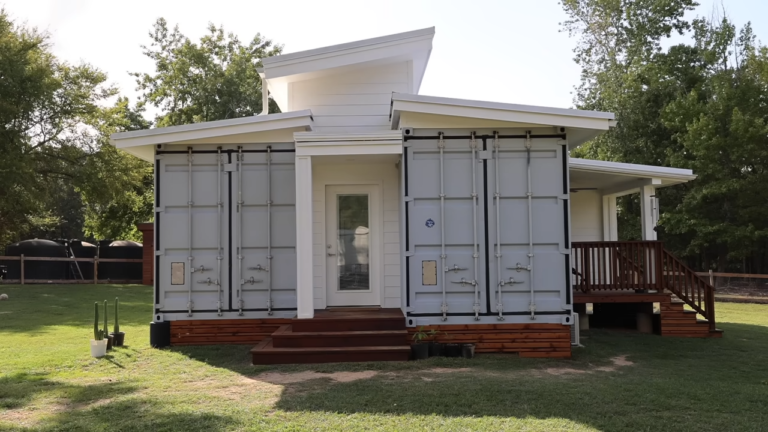Real estate litigation can be a daunting and complex journey for property owners. It involves legal processes and disputes related to properties, often leading to conflicts that can be both emotionally and financially draining.
In this comprehensive guide, we will delve into the world of real estate litigation, offering valuable insights, and providing practical tips to navigate this challenging terrain.
1. What is Real Estate Litigation?

Real estate litigation, in simple terms, refers to the legal disputes that arise in the context of real property, such as land and buildings. These disputes can encompass a wide range of issues, including boundary disputes, breaches of property contracts, problems with property titles, zoning conflicts, and more.
Understanding the nature and scope of these issues is essential for property owners, as it allows them to anticipate potential challenges and take proactive steps to protect their interests.
2. The Importance of Understanding Real Estate Litigation
Property ownership is a significant investment for individuals and businesses alike. It represents not only a place to live or conduct operations but also a substantial financial asset. When disputes or legal issues arise concerning real estate, they can have a profound impact on the owner’s life or business operations.
It is essential to grasp the intricacies of real estate litigation to safeguard one’s property rights, financial well-being, and peace of mind. This is best done with professional help from outlets such as Derfel Estate Law.
3. Common Real Estate Litigation Issues

Real estate litigation can arise from various issues, and understanding these common triggers is the first step in preparing for potential disputes.
- Boundary Disputes: These occur when property owners disagree about the precise location of their property lines. Such disputes can lead to conflicts over land use, encroachments, or the construction of structures near property boundaries.
- Contract Breaches: Property transactions often involve contracts that specify terms and conditions. Breaches occur when one party fails to meet its contractual obligations, such as not delivering the property as agreed upon.
- Title Problems: Issues with property titles, such as unclear ownership records, conflicting claims, or undisclosed liens, can jeopardize property rights and lead to legal disputes.
- Zoning and Land Use Conflicts: Zoning regulations and land use restrictions can be a source of contention, particularly when property owners want to use their land in ways that conflict with local zoning laws.
- Eminent Domain: Governments have the power to acquire private property for public use through eminent domain. Disagreements over compensation or the necessity of such acquisitions can lead to litigation.
4. Why Real Estate Litigation Occurs
Understanding the reasons behind real estate disputes is crucial. Many disputes arise from misunderstandings, disagreements, or the complex nature of property law.
- Miscommunication: A lack of clear communication between parties involved in a property transaction can lead to misunderstandings and disputes. Written agreements and documentation are essential to avoid such issues.
- Disagreements: Differences in expectations, interpretations of contract terms, or changes in circumstances can lead to disagreements that escalate into legal disputes.
- Legal Complexity: Real estate law is intricate, with numerous regulations and requirements. Navigating these complexities without legal guidance can result in disputes.
5. When to Seek Legal Help

Recognizing when it’s time to consult an attorney is vital to protect your interests and avoid further complications.
- Unresolved Disputes: If attempts to resolve a property dispute through negotiation or mediation have failed, it’s time to seek legal assistance.
- Potential Financial Losses: When a property dispute threatens your financial well-being, such as the risk of losing a significant investment, it’s essential to involve legal professionals.
- Legal Threats: If the other party has initiated legal action or threatened to do so, consulting an attorney is a proactive step to defend your rights.
6. Hiring the Right Attorney
Choosing the right attorney is a critical decision that can significantly impact the outcome of your real estate litigation case.
- Specialized Expertise: Opt for an attorney with specialized expertise in real estate law. They will have a deep understanding of the unique challenges and intricacies of property-related legal matters.
- Experience: Look for an attorney with a track record of successfully handling real estate litigation cases. Experience matters when it comes to navigating complex legal processes.
- Reputation: Research and gather recommendations to assess an attorney’s reputation. A strong reputation often reflects their competence and professionalism.
7. Initial Consultation

During your first meeting with an attorney, you can expect a thorough discussion of your case and the sharing of essential documents.
- Case Assessment: The attorney will assess the details of your dispute, including contracts, communication, and any evidence related to the case.
- Legal Strategy: Based on the information provided, the attorney will outline a legal strategy tailored to your specific situation.
8. Understanding the Legal Process
Real estate litigation involves several stages, each with its unique requirements and challenges.
- Filing a Complaint: The process begins with filing a complaint, outlining your grievances and claims.
- Discovery: Both parties gather evidence through discovery, which can include documents, witness statements, and expert opinions.
- Negotiation: Attempts to reach a settlement occur through negotiations, with the aim of resolving the dispute without going to trial.
- Trial: If a settlement isn’t achievable, the case proceeds to trial, where evidence is presented, arguments are made, and a judge or jury makes a final decision.
9. Negotiating a Settlement

Negotiating a settlement can be a more favorable outcome than a protracted court battle.
- Be Open to Compromise: Be willing to compromise and find common ground with the opposing party to reach a mutually beneficial agreement.
- Cost and Time Considerations: Consider the financial and time costs of a trial, and weigh these against the potential benefits of a settlement.
- Legal Guidance: Rely on your attorney’s guidance during negotiations, as they can provide valuable insights and strategies.
10. Preparing for Trial
If your case proceeds to trial, thorough preparation is essential to present a compelling argument.
- Gather Evidence: Collect and organize all relevant evidence, including documents, records, and witness statements.
- Select Witnesses: Choose credible witnesses who can support your case and testify effectively in court.
- Understand Court Procedures: Familiarize yourself with court procedures and etiquette to ensure a smooth trial process.
11. Courtroom Etiquette
Maintaining professionalism and adhering to courtroom etiquette is crucial when appearing in court.
- Dress Appropriately: Dress in a manner that reflects respect for the court, typically in business attire.
- Arrive on Time: Punctuality is essential. Arrive early to allow time for security checks and preparations.
- Respectful Behavior: Conduct yourself with respect and courtesy toward the judge, opposing counsel, and all parties involved.
12. Possible Outcomes

Real estate litigation can lead to various outcomes, each with its implications.
- Winning: If your case is successful, you secure your property rights and may receive compensation or specific performance of a contract.
- Losing: Losing a case can result in financial losses, the relinquishment of property rights, or other unfavorable consequences.
- Settlement: Settling offers a middle ground, providing a resolution that both parties find acceptable, often with fewer financial and emotional costs.
Conclusion
Navigating real estate litigation requires knowledge, timely legal consultation, and strategic preparation for a range of possible outcomes. Property owners must be aware of common issues, understand the reasons behind disputes, and know when to seek legal assistance. Choosing the right attorney with specialized expertise and a solid reputation is pivotal.
Whether the path leads to negotiations or a trial, professionalism and courtroom etiquette are non-negotiable. Real estate litigation can have various outcomes, and property owners must be prepared for the possibilities.
Related Posts:
- Investment Insight: Is This the Right Moment for…
- Does It Snow In Mexico? Is the Snowy Spectacle Real…
- Does It Snow In Indiana? Is Winter Magic Real? Find Out Now!
- How Long is EMS Training: Understanding Duration and…
- Understanding the Ins and Outs of the Hedging…
- Fees When Leasing a Car: A Guide to Understanding…







